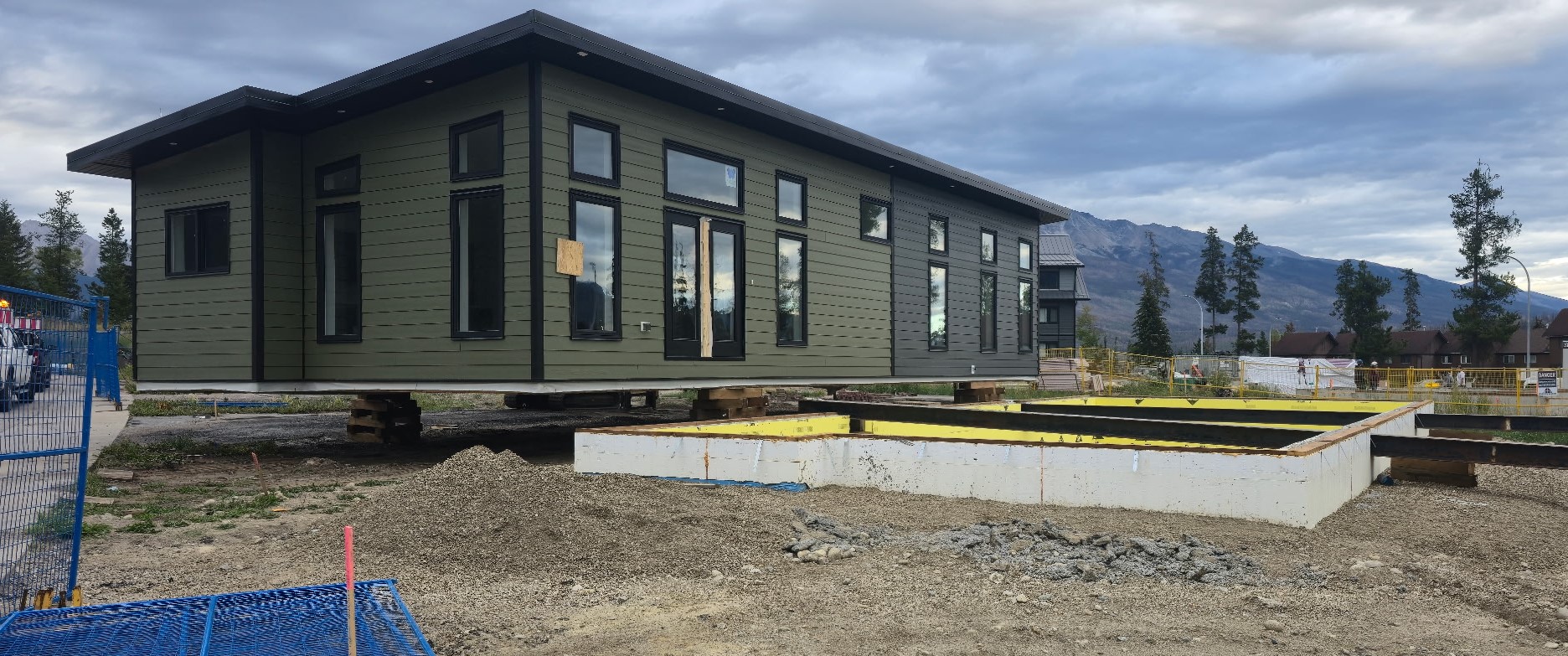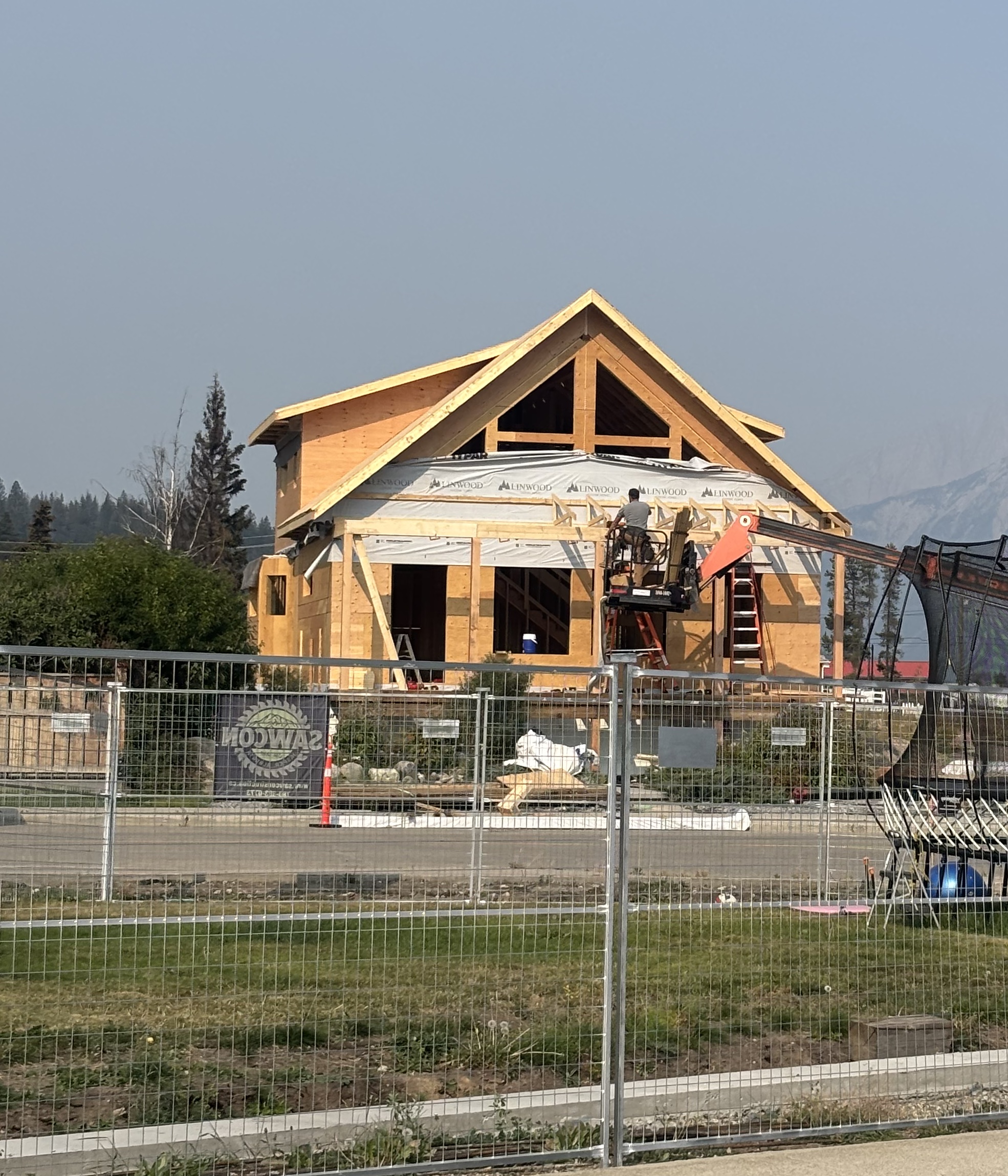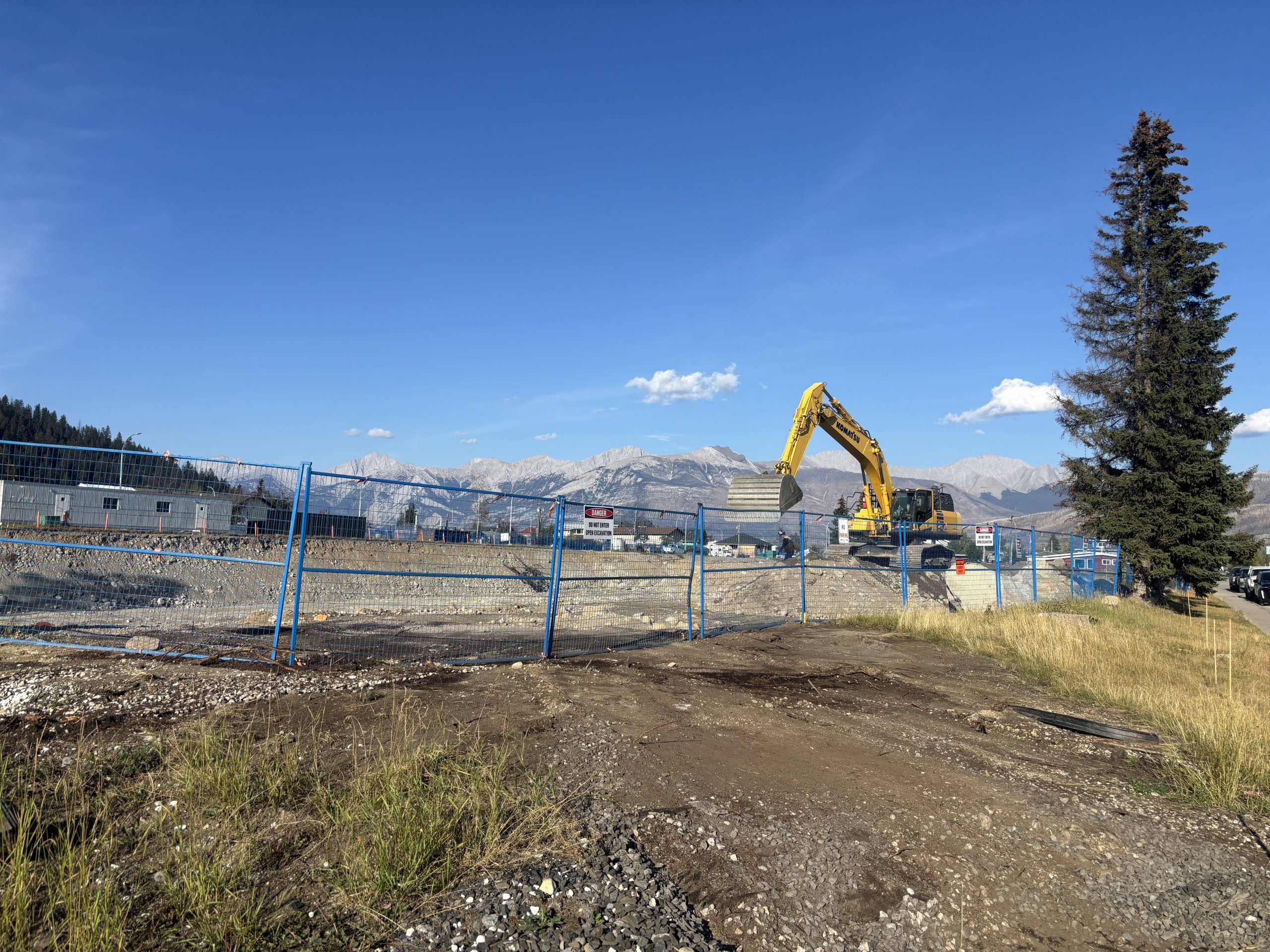Although it could be a decade before the Jasper townsite recovers from last year’s wildfire, rebuild projects have broken ground on several lots.
BILD (Building Industry and Land Development Association) Alberta CEO Scott Fash, whose organization represents the residential construction industry in Alberta, explained how hurdles such as insurance, design and soil testing had kept shovels from getting into the ground.
“I think it was more complex than I’d initially thought, so we’re really starting to hit the ground running now,” Fash said during a Monday (Sept. 15) interview. “Permits are really starting to flow. Everybody’s starting to get construction underway.”
BILD Alberta worked in the immediate aftermath of the wildfire to provide information to Jasper residents to better protect themselves against fraud, which has often been a problem following natural disasters. According to Fash, there have been no serious incidents of fraud in Jasper.
Following this period, BILD shifted to supporting builders by acting as an intermediary with local officials and hosting bi-weekly meetings with a group of builders to co-ordinate for cost-saving purposes.
“In the case of Jasper, because it’s pretty far removed from any of the major centres, you’re not getting a ton of the larger builders out to rebuild, so it’s a lot of smaller companies that might do 10, 15, 20 homes a year,” Fash said. “So, they don’t really have the scale or resources to maybe deal with some of the complexities that building within a national park and from this far away requires.”
The Jasper wildfire destroyed 358 structures, nearly a third of the townsite. Most damage occurred in the residential areas on the south side.
According to Parks Canada statistics presented to Jasper council on Sept. 16, there are 11 properties where construction is underway and two properties with finished buildings as of Sept. 12.
Update: on September 23, a modular home owner in the R4 district received his Occupancy Permit—the first one granted, post-fire.

Nearly all properties have been cleared of debris, but 239 properties remain in the preparation and design stage and have not filed permit applications. Also, 72 properties are in the application process, and 34 have their building permits approved and are ready for construction.
Michael Fark, municipal director of recovery, told council that the Jasper Recovery Coordination Centre was in the process of “quantifying the challenges” that leaseholders face with their rebuilds.
“Some people are underinsured,” Fark said. “Some people are still in a dispute with their insurance company over the nature of their settlement, and therefore it’s not a question necessarily of underinsurance but more about what the insurance actually does and does not cover.”
Leaseholders also face challenges with selecting a builder, designing a home for the first time and financial constraints.
Fark added they were developing programming to help leaseholders with these challenges.
Fash also asserted that a major challenge for residents was working through insurance claims and figuring out the design of their new home, which will likely be different than their old one due to new building code requirements and FireSmart principles.
“So, you’re working through with the builder, you’re working through them with the insurance company and then the municipality to make sure everything’s going to be in line with the requirements, and I think it realistically took longer, and that’s nobody’s fault,” he said.
Other roadblocks include clearing the contaminated soil from sites and the subsequent testing. To address this issue, the federal government announced $5 million in additional support.
Fash added how they have figured out solutions for housing contractors, such as hotels and temporary campgrounds, although they would monitor the situation over the winter to see if a work camp was needed.

While a construction slowdown is expected once snow starts falling, many builders can use on-site heating if the foundations are already poured.
“We’ve gotten pretty good in Alberta at being able to build homes in the winter,” Fash said. “It’s something we were able to do in most centres.”
Fash anticipated that 2026 would be “an incredibly busy year of construction in Jasper,” with many using the winter as an opportunity to complete permitting so they can hit the ground running in the spring.
Alberta has also begun to experience a general slowdown in construction.
“The benefit of that for Jasper is then that’s going to create more availability for trades, materials, supplies, all of those things that will support us in getting homes built in Jasper,” Fash said.
For those who can get their insurance settled, residents will likely get their homes rebuilt within two to three years. Commercial projects, such as rebuilding hotels and gas stations, will likely have longer timelines.

Fash highlighted the level of support that Parks Canada and the Municipality of Jasper have shown throughout the process.
“There’s unique things that come up because we are in a national park and because we are four hours away from a major city, but there really is a collaborative effort on the part of everybody to try to fix those issues as fast as possible,” he said.
Peter Shokeir, Local Journalism Initiative // info@thejasperlocal.com


